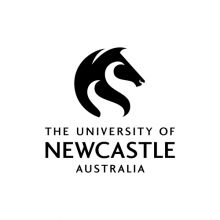Canberra must heed historical lessons to ensure that changes to its technology export laws do not create a red tape nightmare for government and researchers alike, according to University of Newcastle vice-chancellor Alex Zelinsky.
Professor Zelinsky, who was Australia’s chief defence scientist when the Defence Trade Controls Act was introduced in 2012, said its rushed implementation had triggered a “huge backlash” among researchers.
A Senate committee found that the Department of Defence’s “seriously deficient” consultation on the legislation had overlooked “likely” unintended consequences. Further consultations co-led by Professor Zelinsky recommended gradual implementation, while a steering group – headed by then chief scientist Ian Chubb – moulded the new regime into something far more acceptable to the university sector.
“The key here is to make sure we get it right and do the hard work,” Professor Zelinsky told Times Higher Education. “It took us a year or two to get it straight the first time. You’ve got to do it in a way where you don’t create more work for everyone down the track.”
The amendments proposed last month threaten Australian researchers with jail time if they share details about sensitive technology with foreigners other than Britons or Americans without a permit.
Researchers have warned that they could shut down collaborations with researchers in countries outside the Aukus alliance, and put significant obstacles in the way of foreign researchers and students.
Introducing changes to the act into parliament on 30 November, defence minister Richard Marles promised a transition period during which new criminal offences would not apply. He flagged a “thorough inquiry” by a Senate committee and urged stakeholder participation in “potentially improving” the bill.
The Defence Department has since revealed that it might exempt “fundamental” research, which it defines as both basic and applied research, from the need for permits. An exemption is also being considered for “build-to-print” technological components that cannot be reverse-engineered.
Professor Zelinsky said Australia should take note of the experience in Canada, which had undergone a similar process with the US as part of the longstanding International Traffic in Arms Regulations.
“The sky has not fallen in in Canada. What could we learn from Canada before we go off and implement here in Australia? We don’t want to disadvantage our universities or Australian industry,” he said.
Nick Fisk, deputy vice-chancellor for research and enterprise at UNSW Sydney, said aspects of the proposed legislation provided reassurance that the new regime would not prove excessively onerous. One was its construction around the Defence and Strategic Goods List, which was “reasonably set in stone”.
Another was the treatment of permanent residents as Australians, which meant that locals with dual citizenship would not need permits to share their research with Australian, British or American colleagues. “I welcome the government flagging that they are up for considering further exemptions for fundamental research and build-to-print exports,” he added.
But Professor Fisk said there was justifiable “angst” around “third-party responsibilities” in the new arrangements, with permits to export research findings likely to specify exactly who could share the knowledge.
This could prevent researchers from partnering with “some major overseas player” with deep enough pockets to prototype and manufacture Australian inventions. “The export permit will have to deal with everyone in that company who’s going to have access,” he said.
“Start-ups in areas like cyber, artificial intelligence and quantum are worried that this may handcuff their ability to commercialise Australian dual-use technology. There are several grey areas that need sorting out.”
Register to continue
Why register?
- Registration is free and only takes a moment
- Once registered, you can read 3 articles a month
- Sign up for our newsletter
Subscribe
Or subscribe for unlimited access to:
- Unlimited access to news, views, insights & reviews
- Digital editions
- Digital access to THE’s university and college rankings analysis
Already registered or a current subscriber? Login












